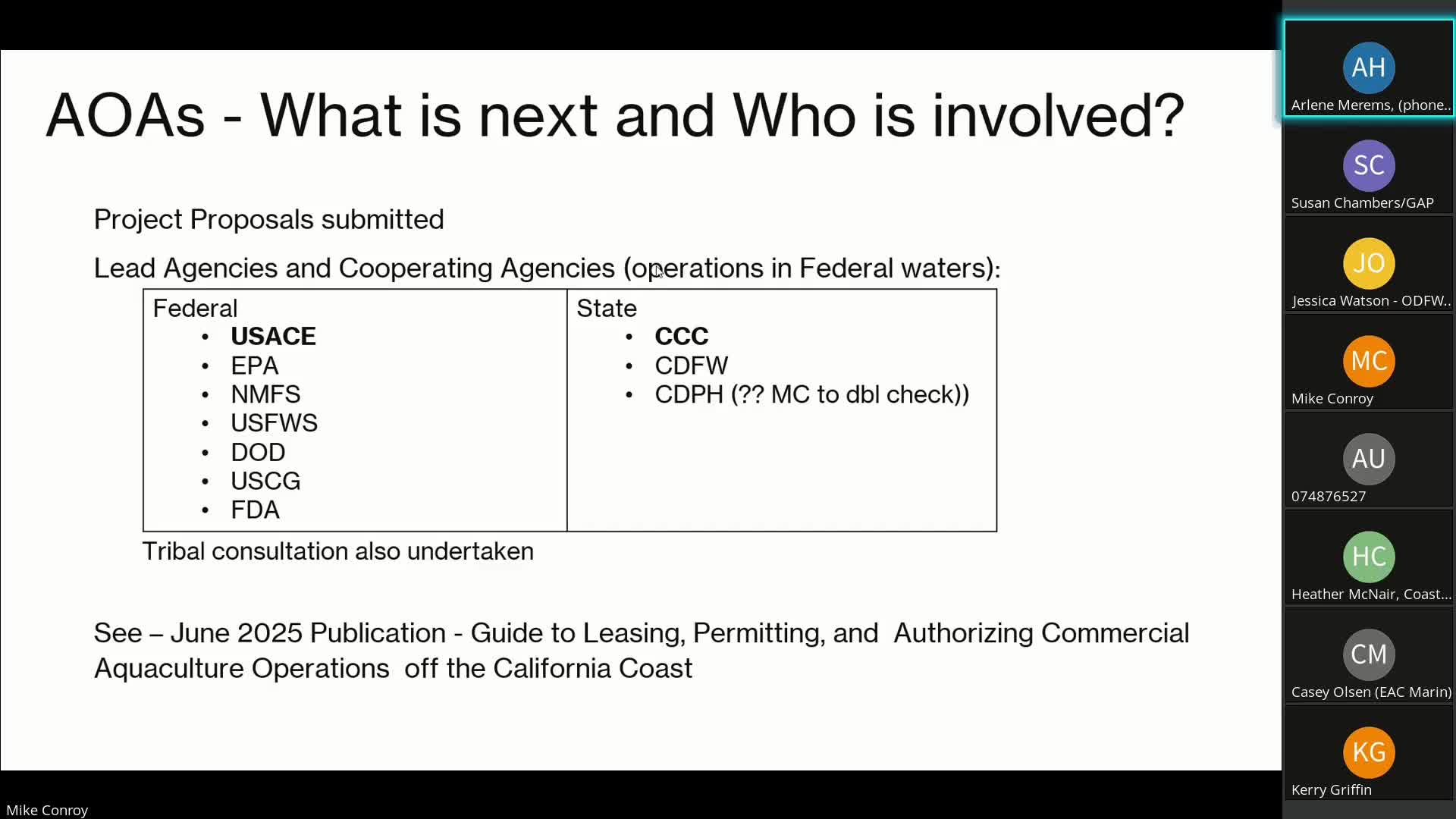West Coast Ocean Alliance to pursue cumulative impacts needs assessment for regional ocean planning
Get AI-powered insights, summaries, and transcripts
Subscribe
Summary
The West Coast Ocean Alliance announced funding continuity and plans for a cumulative impacts needs assessment RFP; the Alliance will coordinate with state and tribal partners to define regional science and data priorities through 2026.
John Hansen, representing the West Coast Ocean Alliance, briefed the committee during the public-comment portion that the Alliance retains NOAA regional ocean partnership funding into year 4 and has received approval for year 4 funding. The Alliance plans a cumulative impacts needs assessment RFP to identify regional needs related to cumulative effects (including aquaculture, renewable energy, dredging and other ocean uses) and expects work to continue into late 2026.
Why it matters: A regional cumulative impacts needs assessment could inform how states, tribes and federal agencies analyze combined effects of multiple ocean uses, helping to prioritize science needs and avoid duplicated effort. Several MPC members identified cumulative assessment timing and scale as central questions for offshore wind and other ocean-use planning.
Details and context: Hansen said the Alliance intends to issue an RFP in the next one to two months and to engage member governments and tribes in scoping needs. The Alliance also noted internal organizational work (membership/decision-making protocols), a planned five-year strategic plan, a West Coast Ocean Science Action Agenda with state Ocean Science Trust partners, a fellowship cohort, and a West Coast Ocean Health dashboard with initial indicators.
Next steps: The Alliance will seek stakeholder input during the needs-assessment process and coordinate with state and federal partners; the committee asked staff to monitor the RFP and consider the study's outputs when preparing council advisories on cumulative effects.
Quote: "We are calling this our CIA NA, but basically emphasizing that it is a needs assessment for the West Coast around cumulative impacts," Hansen said.
